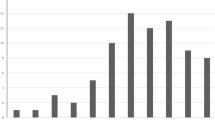Abstract
Storage of unused medications at consumer zones could endanger both public health and the environment. Many pharmaceutical companies invest in collection of unwanted medications to improve corporate social responsibility (CSR) in pharmaceutical sector. This paper proposes a novel method for collaborative decision-making on order quantity and CSR investment within a pharmaceutical supply chain (PSC) consisting of a pharma-supplier and a pharma-retailer. A new index is proposed to assess CSR performance level in the PSC according to customers’ willingness to return their unused drugs. In addition to proposing decentralized and centralized models, a new collaborative decision-making method is developed for coordinating order quantity and CSR investment, thereby optimizing the entire PSC profitability while guaranteeing both PSC actors' participation. Eventually, computational outcomes of the models and managerial insights are presented. The findings suggest that the PSC members in the collaboration model offer a greater incentive to customers to return their unused medicines compared to the decentralized setting. Moreover, the proposed collaboration policy considers the financial goals of independent PSC players, thus resulting in a win–win partnership. Therefore, the proposed collaborative model is highly beneficial for the PSC both economically and environmentally. Moreover, when the profit margin of pharma-supplier is high compared to that of the pharma-retailer, the total amount of collected unused medicines in the collaboration model becomes even larger than that of the centralized model.






Similar content being viewed by others
References
Bahinipati BK, Kanda A, Deshmukh S (2009) Coordinated supply management: review, insights, and limitations. Int J Log Res Appl 12(6):407–422
Bai H (2009) Reverse supply chain coordination and design for profitable returns-an example of ink cartridge. Worcester Polytechnic Institute
Cachon GP (2003) Supply chain coordination with contracts. Handb Oper Res Manag Sci 11:227–339
Chaharsooghi SK, Heydari J, Kamalabadi IN (2011) Simultaneous coordination of order quantity and reorder point in a two-stage supply chain. Comput Oper Res 38(12):1667–1677
Chen L, Zhao X, Tang O, Price L, Zhang S, Zhu W (2017) Supply chain collaboration for sustainability: a literature review and future research agenda. Int J Prod Econ 194:73–87
Chen X, Yang H, Wang X (2018) Effects of price cap regulation on the pharmaceutical supply chain. J Bus Res. https://doi.org/10.1016/j.jbusres.2018.01.030
Dahlsrud A (2008) How corporate social responsibility is defined: an analysis of 37 definitions. Corp Soc Responsib Environ Manag 15(1):1–13
Ebrahimi S, Hosseini-Motlagh S-M, Nematollahi M (2017) Proposing a delay in payment contract for coordinating a two-echelon periodic review supply chain with stochastic promotional effort dependent demand. Int J Mach Learn Cybern. https://doi.org/10.1007/s13042-017-0781-6
Goering GE (2012) Corporate social responsibility and marketing channel coordination. Res Econ 66(2):142–148
Govindan K, Popiuc MN (2014) Reverse supply chain coordination by revenue sharing contract: a case for the personal computers industry. Eur J Oper Res 233(2):326–336
Govindan K, Popiuc MN, Diabat A (2013) Overview of coordination contracts within forward and reverse supply chains. J Clean Prod 47:319–334
Heydari J (2014a) Lead time variation control using reliable shipment equipment: an incentive scheme for supply chain coordination. Transp Res Part E: Log Transp Rev 63:44–58
Heydari J (2014b) Coordinating supplier's reorder point: a coordination mechanism for supply chains with long supplier lead time. Comput Oper Res 48:89–101
Heydari J (2014c) Supply chain coordination using time-based temporary price discounts. Comput Ind Eng 75:96–101
Heydari J (2015) Coordinating replenishment decisions in a two-stage supply chain by considering truckload limitation based on delay in payments. Int J Syst Sci 46(10):1897–1908
Heydari J, Norouzinasab Y (2015) A two-level discount model for coordinating a decentralized supply chain considering stochastic price-sensitive demand. J Indus Eng Int 11(4):531–542
Hosseini-Motlagh SM, Nematollahi M, Nouri M (2018) Coordination of green quality and green warranty decisions in a two-echelon competitive supply chain with substitutable products. J Clean Prod 196:961–984
Hsueh C-F (2014) Improving corporate social responsibility in a supply chain through a new revenue sharing contract. Int J Prod Econ 151:214–222
Hsueh C-F (2015) A bilevel programming model for corporate social responsibility collaboration in sustainable supply chain management. Transp Res Part E: Log Transp Rev 73:84–95
Hu B, Feng Y (2017) Optimization and coordination of supply chain with revenue sharing contracts and service requirement under supply and demand uncertainty. Int J Prod Econ 183:185–193
Jaber MY, Osman IH (2006) Coordinating a two-level supply chain with delay in payments and profit sharing. Comput Ind Eng 50(4):385–400
Jazinaninejad M, Seyedhosseini SM, Hosseini-Motlagh SM, Nematollahi M (2018) Coordinated decision-making on manufacturer’s EPQ-based and buyer’s period review inventory policies with stochastic price-sensitive demand: a credit option approach. RAIRO-Oper Res. https://doi.org/10.1051/ro/2018038
Johari M, Hosseini-Motlagh SM, Nematollahi M (2017) Simultaneous coordination of review period and order-up-to-level in a manufacturer-retailer chain. Journal of Industrial and Systems Engineering 10:1–17
Johari M, Hosseini-Motlagh SM, Nematollahi M, Goh M, Ignatius J (2018) Bi-level credit period coordination for periodic review inventory system with price-credit dependent demand under time value of money. Transp Res Part E: Log Transp Rev 114:270–291
Li J, Liu L (2006) Supply chain coordination with quantity discount policy. Int J Prod Econ 101(1):89–98
Li W, Chen J, Chen B (2018) Supply chain coordination with customer returns and retailer’s store brand product. Int J Prod Econ. https://doi.org/10.1016/j.ijpe.2018.05.032
Modak NM, Panda S, Sana SS (2015) Pricing policy and coordination for a two-layer supply chain of duopolistic retailers and socially responsible manufacturer. Int J Log Res Appl 19(6):1–22
Modak NM, Panda S, Sana SS, Basu M (2014) Corporate social responsibility, coordination and profit distribution in a dual-channel supply chain. Pac Sci Rev 16(4):235–249
Nematollahi M, Hosseini-Motlagh S-M, Heydari J (2017a) Economic and social collaborative decision-making on visit interval and service level in a two-echelon pharmaceutical supply chain. J Clean Prod 142(4):3956–3969
Nematollahi M, Hosseini-Motlagh S-M, Heydari J (2017b) Coordination of social responsibility and order quantity in a two-echelon supply chain: a collaborative decision-making perspective. Int J Prod Econ 184:208–121
Nematollahi M, Hosseini-Motlagh SM, Ignatius J, Goh M, Nia MS (2018) Coordinating a socially responsible pharmaceutical supply chain under periodic review replenishment policies. J Clean Prod 172:2876–2891
Ni D, Li KW (2012) A game-theoretic analysis of social responsibility conduct in two-echelon supply chains. Int J Prod Econ 138(2):303–313
Ni D, Li KW, Tang X (2010) Social responsibility allocation in two-echelon supply chains: Insights from wholesale price contracts. Eur J Oper Res 207(3):1269–1279
Nouri M, Hosseini-Motlagh SM, Nematollahi M, Sarker BR (2018) Coordinating manufacturer’s innovation and retailer’s promotion and replenishment using a compensation-based wholesale price contract. Int J Prod Econ 198(1):11–24
Panda S (2014) Coordination of a socially responsible supply chain using revenue sharing contract. Transp Res Part E: Log Transp Rev 67:92–104
Panda S, Modak N (2016) Exploring the effects of social responsibility on coordination and profit division in a supply chain. J Clean Prod 139:25–40
Panda S, Modak N, Basu M, Goyal S (2015) Channel coordination and profit distribution in a social responsible three-layer supply chain. Int J Prod Econ 168:224–233
Phillips J, Gholamalifard M (2016) Quantitative evaluation of the sustainability or unsustainability of municipal solid waste options in Tabriz, Iran. Int J Environ Sci Technol 13(6):1615–1624
Simons TE (2010) Drug take-back programs: safe disposal of unused, expired, or unwanted medications in North Carolina
Thach AV, Brown CM, Pope N (2013) Consumer perceptions about a community pharmacy-based medication take back program. J Environ Manage 127:23–27
Tingchi Liu M, Anthony Wong I, Rongwei C, Tseng T-H (2014) Do perceived CSR initiatives enhance customer preference and loyalty in casinos? Int J Contemp Hosp Manag 26(7):1024–1045
Tong AY, Peake BM, Braund R (2011) Disposal practices for unused medications around the world. Environ Int 37(1):292–298
Uthayakumar R, Priyan S (2013) Pharmaceutical supply chain and inventory management strategies: Optimization for a pharmaceutical company and a hospital. Oper Res Health Care 2(3):52–64
Van Marrewijk M (2003) Concepts and definitions of CSR and corporate sustainability: between agency and communion. J Bus Ethics 44(2):95–105
Weraikat D, Zanjani MK, Lehoux N (2016a) Coordinating a green reverse supply chain in pharmaceutical sector by negotiation. Comput Ind Eng 93:67–77
Weraikat D, Zanjani MK, Lehoux N (2016b) Two-echelon pharmaceutical reverse supply chain coordination with customers incentives. Int J Prod Econ 176:41–52
Wu C-H (2015) Collaboration and sharing mechanisms in improving corporate social responsibility. Cent Eur J Oper Res 24(3):1–27
Xu X, He P, Xu H, Zhang Q (2017) Supply chain coordination with green technology under cap-and-trade regulation. Int J Prod Econ 183:433–442
Acknowledgements
Would like to thank the editor and the anonymous reviewer for their constructive comments on our paper, which helped us improve the quality of our research work.
Author information
Authors and Affiliations
Corresponding author
Ethics declarations
Conflict of interest
The authors declare that they have no conflict of interest.
Additional information
Editorial responsibility: Dibyendu Sarkar.
Rights and permissions
About this article
Cite this article
Nematollahi, M., Hosseini-Motlagh, SM. A collaborative decision-making model for collecting unused medications in an environmentally responsible pharmaceutical supply chain. Int. J. Environ. Sci. Technol. 19, 1907–1924 (2022). https://doi.org/10.1007/s13762-021-03332-z
Received:
Revised:
Accepted:
Published:
Issue Date:
DOI: https://doi.org/10.1007/s13762-021-03332-z




